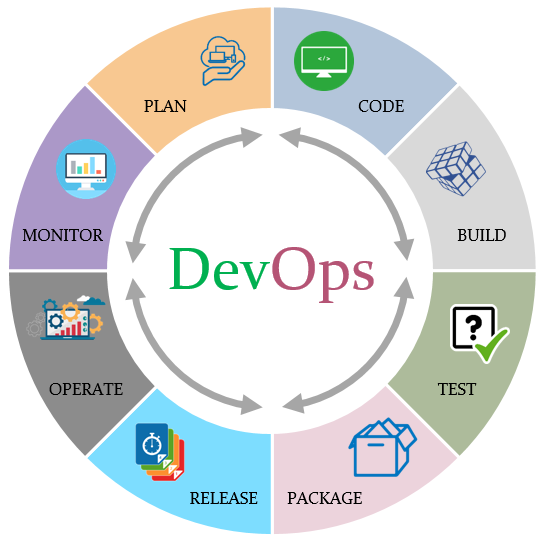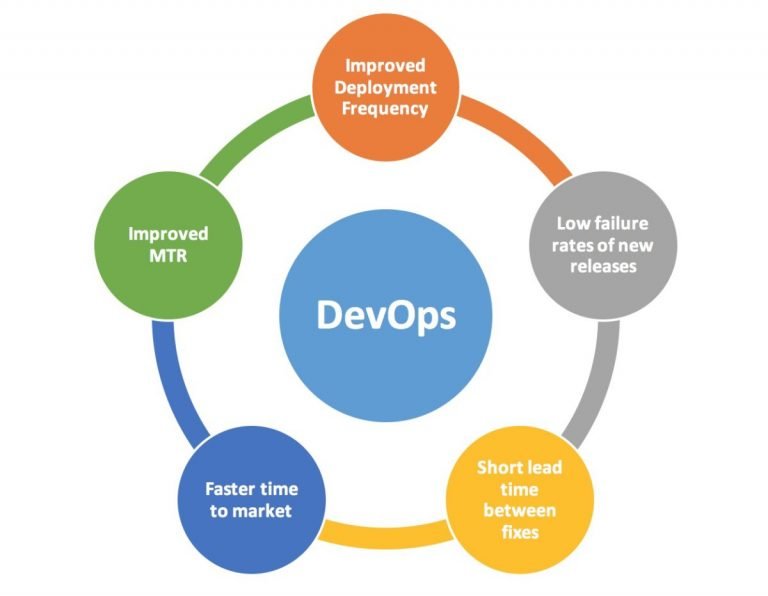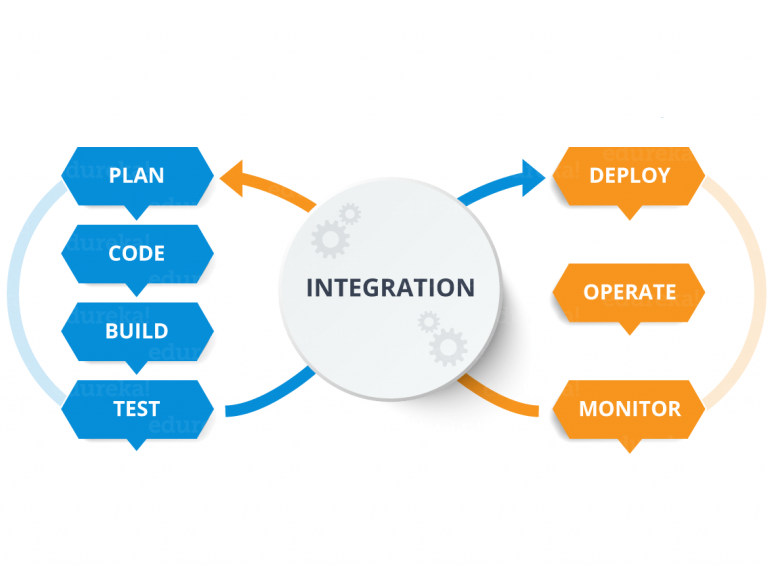
Overview of DevOps
JCS provides DevOps for Industry Transformation DevOps Engineers | DevOps Service Providers | Agile DevOps
DevOps Services – communication, collaboration, integration, and automation to improve the quality and reliability of software
DevOps is a set of practices that combines software development and IT operations. It aims to shorten the systems development life cycle and provide continuous delivery with high software quality. DevOps is complementary with Agile software development; several DevOps aspects came from Agile methodology.

Developments & Operations

DevOps Matters
JCS practice of DevOps encourages smoother, continuous communication, collaboration, integration, visibility, and transparency between our application development teams (Dev) and IT operations team (Ops) counterparts. JCS follows some effect DevOps principles to help their valuable customers with following aspects. Plan: helps define business value and requirements. Code: involves software design and the creation of software code. Ex: GitHub, GitLab, Bitbucket, or Stash. Build: manage software builds and versions, and use automated tools include Docker, Terraform, Ansible, Puppet & Maven. Test: involves continuous testing (manual or automated). Ex: JUnit, Codeception, Selenium, Vagrant, TestNG, or BlazeMeter. Deploy: include tools that help manage, coordinate, schedule, and automate product releases into production. Ex: include Puppet, Chef, Ansible, Jenkins, Kubernetes, OpenShift, OpenStack, Docker, or Jira. Operate: manages software during production. Ex: Ansible, Puppet, PowerShell, Chef, Salt, or Otter. Monitor: involves identifying and collecting information about issues from a specific software release in production. Ex: New Relic, Datadog, Grafana, Wireshark, Splunk, Nagios, or Slack.
DevOps Methods
There are some DevOps methods that JCS can use to speed and improve development and product releases. They take the form of Software Development Methodologies and Practices. Among the most popular ones are Scrum, Kanban, and Agile:
Scrum: Scrum defines how members of a team should work together to accelerate development and QA projects. Scrum practices include key workflows and specific terminology (sprints, time boxes, daily scrum [meeting]), and designated roles (Scrum Master, product owner).
Kanban: Kanban originated from efficiencies gained on the Toyota factory floor. Kanban prescribes that the state of software project work in progress (WIP) be tracked on a Kanban board.
Agile: Earlier agile software development methods continue to heavily influence DevOps practices and tools. Many DevOps methods, including Scrum and Kanban, incorporate elements of agile programming. Some agile practices are associated with greater responsiveness to changing needs and requirements, documenting requirements as user stories, performing daily standups, and incorporating continuous customer feedback. Agile also prescribes shorter software development lifecycles instead of lengthy, traditional “waterfall” development methods


CI/CD
Continuous Integration (CI) & Continuous Delivery (CD) is the effective software development practice of developing, integrating, building, testing, and delivering improvements to software code and user environments through automated tools. We at JCS practice continuous integration & delivery by using CI/CD Pipelines, which integrates & deploys code and runs automated scripts which lets you build a workflow that builds code in Cloud Infrastructure such as AWS, Azure, GCP, etc.
-
Identifying risk factors
-
Automation testing
-
Change management
-
Release management
-
Performance optimization
